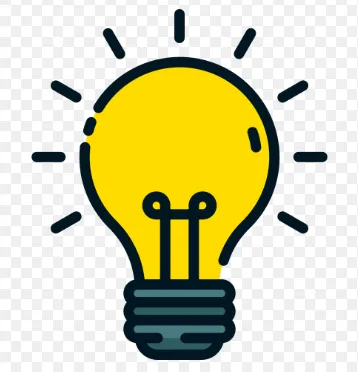Hey there, creative problem-solvers! Ever felt stuck, staring at a blank page, or wrestling with a challenge that just won’t budge? You’re not alone. We all hit those walls, those moments where inspiration feels miles away. But what if I told you there’s a powerful framework, a proven methodology, that can help you blast through those creative roadblocks and unlock a whole new level of innovation? That’s where design thinking and ideation workshops come in.
Design thinking isn’t just some buzzword; it’s a human-centered approach to problem-solving. Think of it as a superpower for your brain, allowing you to tap into your creative potential and generate truly groundbreaking ideas. It’s about understanding the user, empathizing with their needs, and then crafting solutions that are not only innovative but also genuinely useful and desirable. And ideation? That’s the engine that fuels the design thinking process – it’s the brainstorming, the exploring, the wild, free-flowing generation of ideas.
So, how does it all work? Imagine design thinking as a journey, a five-stage adventure that takes you from a murky problem to a sparkling solution. First, you empathize – you dive deep into understanding the user’s experience. This isn’t about making assumptions; it’s about actively listening, observing, and truly connecting with the people you’re trying to help. Think of it like becoming a detective, gathering clues to solve a mystery – the mystery of the user’s needs.
Next comes define. Based on your empathy work, you clearly define the problem you’re trying to solve. This is about stating the problem concisely, focusing on the core issue, and avoiding getting bogged down in the details. Think of this stage as sharpening your focus – honing your laser-like attention on the bullseye of the problem.
Then comes the fun part: ideate! This is where the brainstorming magic happens. You unleash your creativity, generating a wealth of potential solutions. Don’t censor yourself; let your ideas flow freely, even if they seem wild or impossible at first. This stage is all about quantity over quality – the more ideas you generate, the better your chances of stumbling upon a truly brilliant solution. You can learn more about effective ideation techniques in our comprehensive guide on collaborative ideation.
Once you have a plethora of ideas, it’s time to prototype. This doesn’t mean building a fully functional product; it’s about creating a simple representation of your solution – a rough sketch, a mock-up, a quick demonstration. The goal is to test your ideas quickly and cheaply, to get feedback and refine your solution before investing too much time and resources. Want to know more about creating effective prototypes? Check out our insights on prototyping and testing.
Finally, you test. You gather feedback on your prototypes, refine your solution based on that feedback, and iterate – repeat the process until you arrive at a solution that truly meets the user’s needs. This iterative process is crucial to design thinking’s success. It’s like sculpting a masterpiece – chipping away at the excess until you reveal the beauty within.
Design thinking workshops offer a structured environment for navigating this process. They provide a framework, a set of tools, and a supportive community to help you unleash your creative potential. These workshops aren’t just lectures; they’re interactive, hands-on experiences designed to challenge your thinking and push you beyond your comfort zone. They offer a chance to learn from experts, collaborate with peers, and build skills that will serve you throughout your career. Imagine the impact you could have, armed with these problem-solving skills! Think of it as upgrading your toolkit – adding powerful tools that will transform your problem-solving prowess.
Our workshops cover a range of topics, from the principles of design thinking to advanced techniques for advanced applications and advanced concepts. Whether you’re a seasoned professional or just starting out, we have a workshop tailored to your needs. We also offer specialized sessions focusing on creative problem-solving strategies to help you tackle any challenge head-on.
We understand that learning is a journey, not a destination, and that’s why we offer a comprehensive range of resources beyond our workshops. You can explore our blog for insightful articles, delve into our extensive collection of tools and resources, and discover a wealth of knowledge on various techniques and strategies. We aim to provide you with a comprehensive learning experience that helps you master the art of design thinking.
Furthermore, we believe in the power of collaboration. Our workshops encourage teamwork and knowledge sharing. This collaborative approach fosters a vibrant learning environment where participants can learn from each other’s experiences and perspectives. To truly grasp the benefits of collaborative ideation, read our article on virtual collaboration and how it enhances the creative process. We also offer tailored workshops focusing on collaborative techniques to maximize the effectiveness of group ideation.
So, are you ready to transform your approach to problem-solving? Are you ready to unlock your creative potential and become a more innovative thinker? Our design thinking and ideation workshops are your key to unlocking a world of possibilities. They’re an investment in yourself, your team, and your future. They’re a chance to learn skills applicable across various industries and contexts – from product development to marketing, from education to social impact.
Don’t just passively consume information; actively engage with the process. Experiment, iterate, and refine your skills. Join our community of creative problem-solvers, and together, let’s build a brighter future.
Conclusion
Design thinking and ideation aren’t just abstract concepts; they are practical, powerful tools that can transform how you approach challenges. By embracing the human-centered approach of design thinking and harnessing the power of collaborative ideation, you can unlock your creative potential and generate truly innovative solutions. Our workshops offer a supportive and engaging environment to learn and master these essential skills. So, what are you waiting for? Take the first step towards becoming a more innovative and effective problem-solver today!
FAQs
- What is the difference between design thinking and ideation? Design thinking is a broader, five-stage process encompassing empathy, definition, ideation, prototyping, and testing. Ideation is a crucial part of the design thinking process, specifically the brainstorming and generation of ideas phase.
- Are your workshops suitable for beginners? Absolutely! Our workshops cater to all skill levels, from complete beginners to experienced professionals. We provide tailored support and guidance to ensure everyone feels comfortable and engaged.
- What kind of tools and techniques will I learn? You’ll learn a variety of techniques, including brainstorming methods, sketching techniques, prototyping methods, and user research strategies. We also explore various tools and software to enhance your design thinking process.
- How can I apply design thinking to my specific industry? Design thinking is applicable across industries. Our workshops will help you adapt the core principles to your specific context and challenges, showing you how to leverage these methods to solve industry-specific problems.
- What is the commitment involved in attending a workshop? Workshop lengths vary, but generally involve a structured learning experience across a set number of days or sessions. We provide detailed information on the time commitment for each specific workshop prior to registration.

